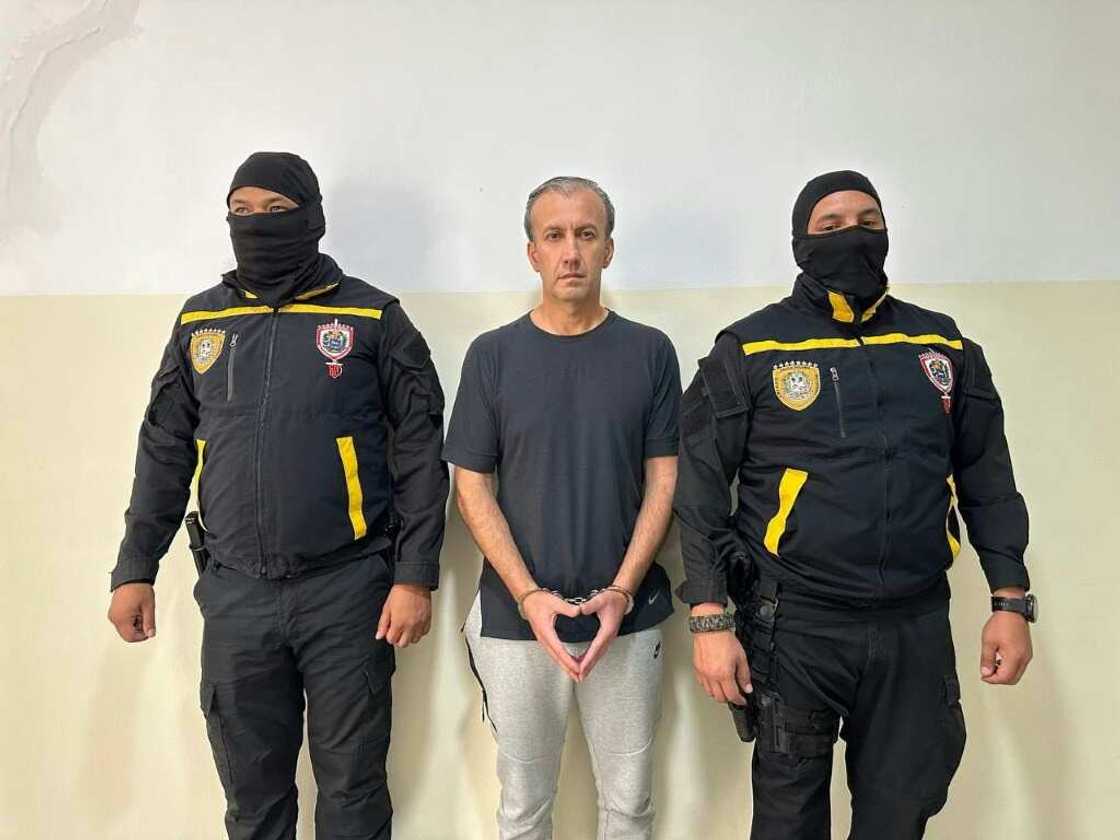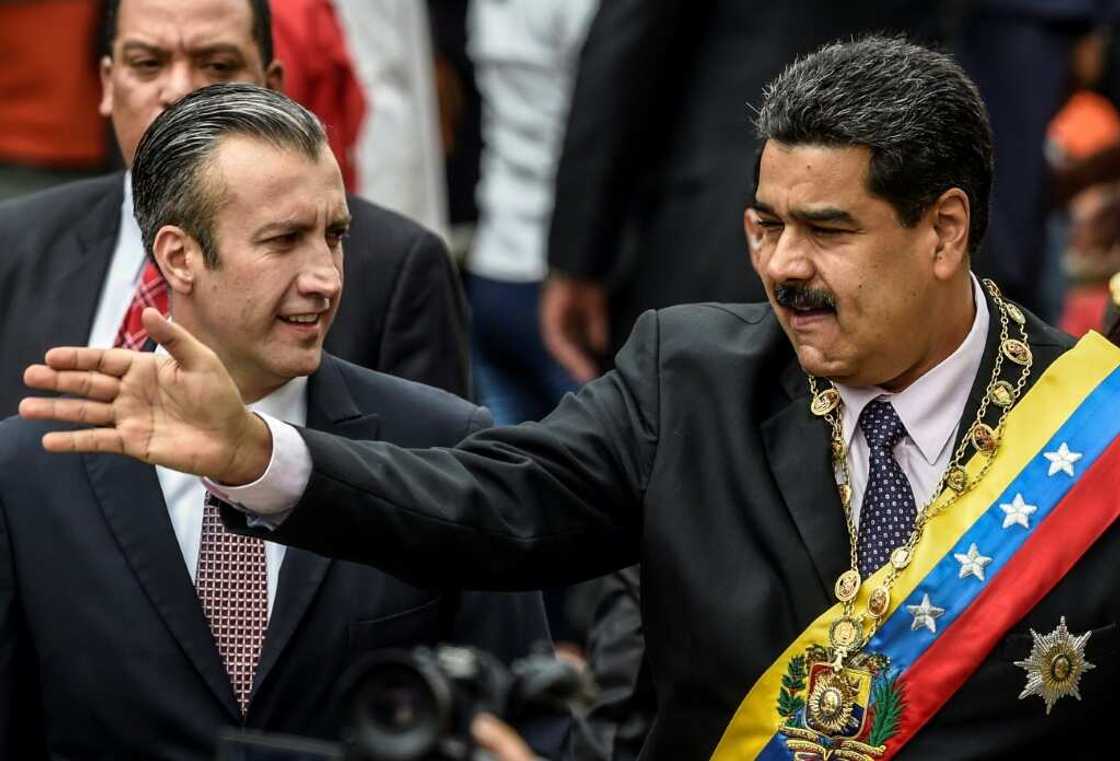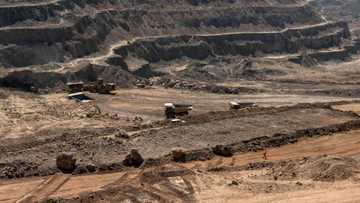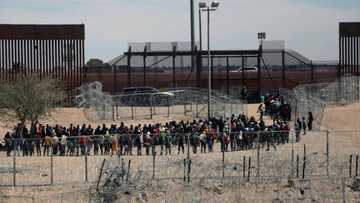Oil: 'Mother of corruption' in Venezuela

Source: AFP
PAY ATTENTION: The 2024 Business Leaders Awards Present Entrepreneurs that Change Nigeria for the Better. Check out their Stories!
Corruption in Venezuela's oil industry is a many-headed monster that has devoured billions of dollars in taxpayers' money in the past 20 years, experts say.
Long the country's only notable export and foreign currency earner, oil became a doorway to political and economic power.
Since 1976, when Venezuela nationalized the commodity -- then very lucrative for the petrostate -- control of oil has rested with state company PDVSA (Petroleum of Venezuela).
Over the years, the company became increasingly politicized and ever-closer to "Chavismo" -- the brand of populist leftist ideology championed by late president Hugo Chavez and inherited by incumbent Nicolas Maduro.
Managers started to be chosen for their loyalty rather than their knowledge of the oil business.
"PDVSA was long the mother of corruption," Mercedes De Freitas, executive director of Transparency Venezuela, told AFP.
PAY ATTENTION: Share your outstanding story with our editors! Please reach us through info@corp.legit.ng!
"There was no accountability and there is still no accountability."
To date, oil-related graft has cost the country tens of billions of dollars, with "very little chance of getting it back," she said.
Since 2004, 164 criminal investigations have been opened in 29 countries into "acts of alleged corruption or other organized crime involving senior public officials" from Venezuela -- many from PDVSA, according to the NGO.
"Just half of those cases add up to $68 billion" lost to the state, said De Freitas.
"I say half... because we don't have access to all the files."
Another 31 investigations were opened in Venezuela itself since 2017, with more than 300 arrests to date.
From ally to antihero
As Maduro has vowed to clamp down -- though some have questioned whether he may have political motives as well -- the most recent head to roll was that of former petroleum minister Tareck El Aissami.
El Aissami, a former close ally of Maduro and of Chavez, was arrested this month along with dozens of others in an operation publicized by authorities who disseminated photos of him in handcuffs.

Source: AFP
He faces charges of treason and appropriation of public funds, influence peddling, money laundering and criminal association.
The case involves the sale of crude through cryptocurrency networks -- a scheme sanctioned by Caracas to circumvent US sanctions, but allegedly taken advantage of by some for personal gain.
Transparency Venezuela estimates that nearly $17 billion was lost in the crypto plot -- three times as much money as the country needs to fix chronic and crippling electricity shortages.
Venezuela has the world's largest proven reserves of oil.
The South American country once produced more than three million barrels a day, but this has dropped to less than a million barrels following years of mismanagement and crushing sanctions.
As oil production shrunk so did revenues, worsening the economic crisis that has prompted millions to leave the country.
Helicopter lunches
El Aissami is just the latest oil minister to bite the dust. Rafael Ramirez is at large in Italy. Two others, Eulogio del Pino and Nelson Martinez, were arrested in Venezuela.
Martinez subsequently died in prison.
Venezuela is among the four most corrupt countries in the world, along with South Sudan, Syria and Somalia, according to Transparency International's Corruption Perceptions Index.
Corruption in PDVSA is pervasive: from the theft of televisions and computers to bribes and pocketing cash from deals with inflated prices, insiders have reported.
A former industry employee, speaking on condition of anonymity, told AFP of top bosses ordering lunch to be delivered by helicopter, or reserving 60 rooms at three different hotels for an event "for safety," then using only a third of them.

Source: AFP
Anyone who spoke out was silenced, and many have been imprisoned.
Maduro, who will seek a third term in July 28 elections amid accusations he is abusing state institutions to kneecap opposition challengers, has proposed raising the maximum sentence for corruption from 30 years to life.
"We have to be ruthless, whoever falls!" Maduro said after the arrest of El Aissami.
Pedro Tellechea, the new minister and head of the PDVSA, insists he will "clean up" using audits, even installing cameras to monitor oil negotiations.
Any deviations will be reported "directly to the public prosecutor's office," he vowed at a recent meeting with reporters.
PAY ATTENTION: Stay Informed and follow us on Google News!
Source: AFP






